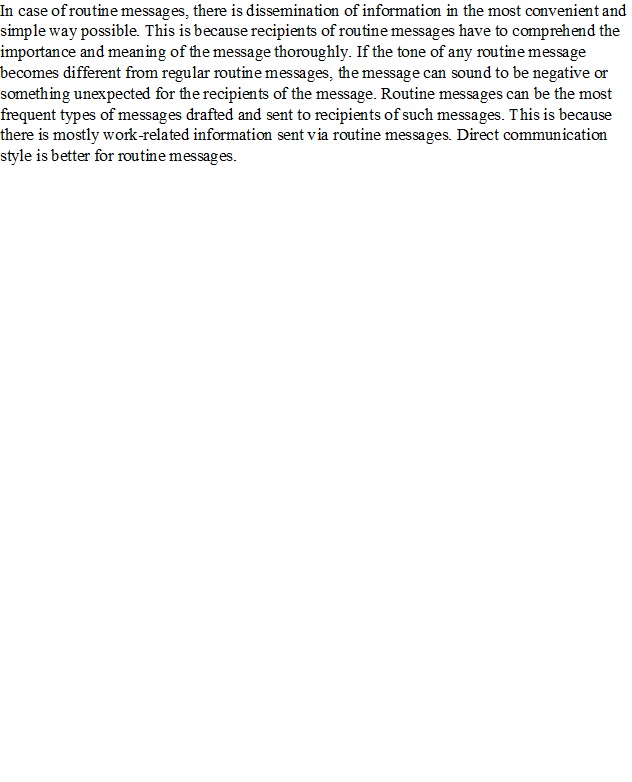


Q After reviewing the example messages in Chapter 9 of our textbook, analyze the rhetorical situations for each. What are the main differences between routine, positive, and negative messages? What are the most tactful ways to address the problems and the audience for each of these? Be specific. Your post should be around 300 words. Reply to one classmate's post.
View Related Questions